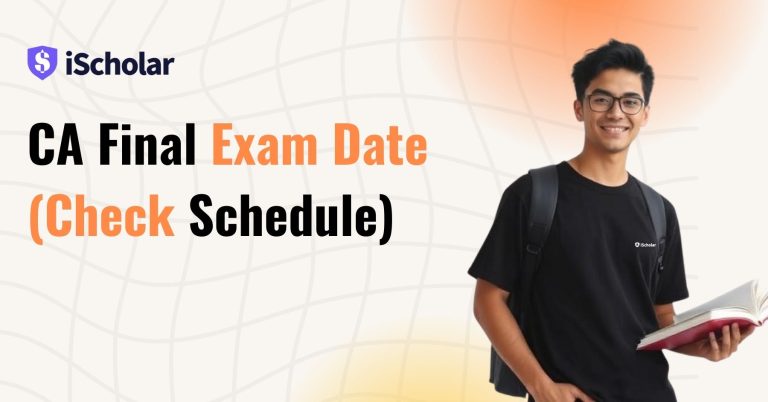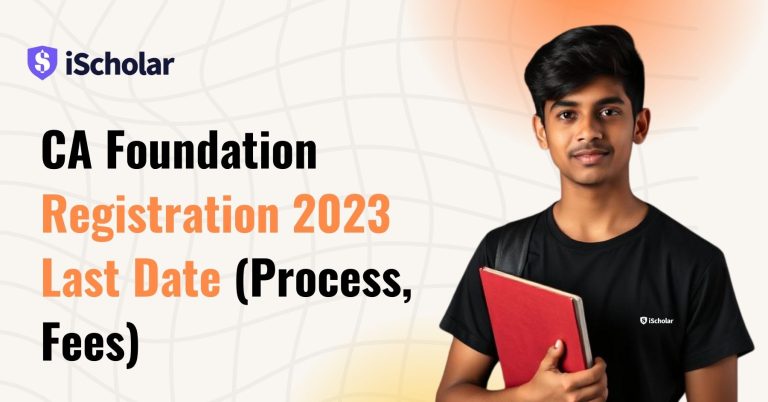The CA Inter, also known as the Intermediate level of the Chartered Accountancy (CA) course, covers a wide range of subjects related to accounting, finance, taxation, and law. The CA Intercourse is designed to equip candidates with the knowledge and skills required to become professional accountants and excel in their careers.
The Subjects in CA inter is challenging and requires a high level of dedication and hard work. Candidates who successfully complete the CA Inter level are eligible to pursue the final level of the CA course.
What Are the 8 Subjects in CA Inter?
The Chartered Accountancy (CA) Intermediate level course comprises eight subjects that are divided into two groups. The subjects are as follows:
Group I:
- Accounting
- Corporate and Other Laws
- Cost and Management Accounting
- Taxation
Group II:
- Advanced Accounting
- Auditing and Assurance
- Enterprise Information Systems & Strategic Management
- Financial Management & Economics for Finance
Each subject in the CA Intermediate level course is important and covers various topics related to accounting, finance, taxation, law, and information technology. Candidates are required to study all eight subjects to successfully clear the CA Intermediate exam. The CA Intermediate course is considered to be a challenging and demanding course, and candidates need to work hard and dedicate themselves to their studies to successfully clear the exam.
What are the 4 levels of CA?
The Chartered Accountancy (CA) course has four levels, which are as follows:
- CA Foundation: This is the entry-level exam for the CA course, and candidates can appear for this exam after completing their 10+2 education. It comprises four papers and covers topics related to accounting, mercantile law, economics, and mathematics.
- CA Intermediate: This is the second level of the CA course and is divided into two groups of four subjects each. Candidates can appear for this exam after clearing the CA Foundation exam and completing nine months of study course. The subjects covered at this level include Accounting, Corporate and Other Laws, Cost and Management Accounting, Taxation, Advanced Accounting, Auditing and Assurance, Enterprise Information Systems & Strategic Management, and Financial Management & Economics for Finance.
- Three Years of Articleship: After clearing the CA Intermediate level exam, candidates need to complete three years of articleship under a practicing CA. This is a practical training period where candidates gain hands-on experience in the field of accounting and finance.
- CA Final: This is the final level of the CA course, and candidates can appear for this exam after completing their articleship period. It comprises two groups of four subjects each and covers advanced topics related to accounting, finance, taxation, law, and information technology.
In summary, the four levels of the CA course are CA Foundation, CA Intermediate, Three Years of Articleship, and CA Final.
Which Subject Is Strong for CA?
As the Chartered Accountancy (CA) course covers a wide range of subjects related to accounting, finance, taxation, and law, it is difficult to say which subject is strong for CA. Each subject in the CA course requires a high level of dedication, hard work, and commitment to excel.
However, candidates who have a strong foundation in accounting and finance may find the accounting and finance-related subjects such as Accounting, Cost and Management Accounting, and Financial Management & Economics for Finance to be relatively easier. On the other hand, candidates who have an interest in taxation may find the Taxation subject to be relatively easier. Similarly, candidates with a keen interest in law may find the Corporate and Other Laws subject to be relatively easier.
It is worth noting that every candidate has their strengths and weaknesses, and the best approach to excel in the CA course is to study all the subjects thoroughly and practice regularly. With consistent efforts and hard work, candidates can excel in all the subjects and clear the CA exams with flying colors.
FAQ: Subjects in CA Inter
Is CA math hard?
The Chartered Accountancy (CA) course includes various subjects related to accounting, finance, taxation, and law, and it does involve a fair amount of math. However, whether or not the math in the CA course is hard depends on an individual’s aptitude for math and their level of preparation. For candidates who have a strong foundation in math, the math-related topics such as ratios, percentages, and algebra in the CA course may be relatively easier. However, for candidates who struggle with math, these topics may be more challenging.
It is worth noting that the math in the CA course is not advanced or highly complex, and candidates with basic math skills should be able to handle it with regular practice and preparation. With dedication and hard work, candidates can overcome any challenges they face in math or any other subjects in the CA course.
In summary, while the CA course does involve math, whether or not it is hard depends on an individual’s aptitude and preparation.
How many subjects are there in CA intermediate?
The Chartered Accountancy (CA) Intermediate course comprises Four subjects that are divided into groups. The subjects are as follows:
Group I:
- Accounting
- Corporate and Other Laws
- Cost and Management Accounting
- Taxation,
Therefore, there are four subjects in CA Intermediate. Candidates are required to study all four subjects to successfully clear the CA Intermediate exam. The CA Intermediate course is considered to be a challenging and demanding course.
CONCLUSION:
To excel in the CA Intermediate course, candidates need to dedicate themselves to their studies, work hard, and have a clear understanding of all the subjects. While each subject requires effort and commitment, candidates can focus on their strengths and interests to perform better in some subjects. However, it is essential to study and practice regularly to gain a strong foundation and understanding of all the subjects to successfully clear the CA Intermediate exam. Subjects in CA Inter require hard work and dedication.
Please leave a comment if you have any queries.





